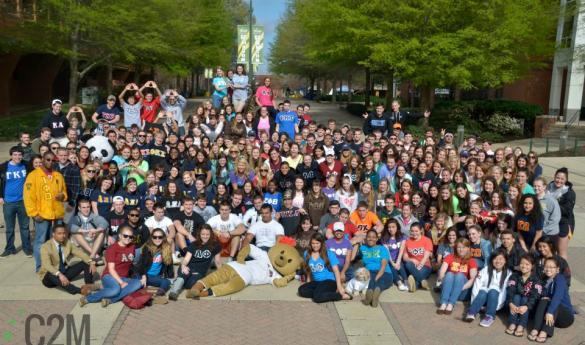Costs block development of Greek row
Mason has twenty fraternities and sororities that recruit in the fall and sixteen more that accept members throughout the school year. Yet without campus-provided housing, the groups face unique problems like reserving spaces for events and forming their own living arrangements. Members often room together or rent houses off campus.
“If we had a Greek row, we could have a guaranteed place that fraternities and sororities could use for big events. More fraternities and students could attend due to proximity,” said Devin Limo, president of fraternity Kappa Sigma.
Like many students and members of the Greek community, Limo feels a guaranteed space would help groups unify their philanthropy efforts and attract larger crowds. Faculty members, who admit a Greek row would bring unity to strengthen the impact of the groups, share the feeling.
“They allow a place they can congregate as an organization. Even the community can congregate there,” said Phil McDaniel, associate director of Student Involvement for Fraternity & Sorority Life
Faculty recognize possible perks of bringing Greek life parties closer to campus.
“If a Greek row were brought to campus they would only be able to control the parties more and be able to keep tabs on them,” Limo said.
McDaniel echoed some of those sentements.
“George Mason police might be able to work with them better if they were closer,” McDaniel said.
The absence of a Greek Row is largely due to cost. There is a huge demand for underclassmen housing and Mason can focus either on building residence halls, which they know will be filled and house more people, or building Greek life houses.
According to McDaniel, Greek housing would be "close to a million dollars per facility."
“If you do not fill the facility someone has to pay for that and usually it’s the organization," McDaniel said. "And then typically dues go up because they often charge each member a parlor fee. I think our members sometimes don’t see that our dues just for the average member would probably go up, I would easily say $100 if not more.”
For those who want to see rows of Greek housing on Mason’s lawns, garnering more support may be the solution. Only 7 percent of undergraduates currently participate in Greek life, and power lies in numbers. If participation in the groups rises, so will their philanthropic impact.
“Yes our students want it now but this is something that takes time,” McDaniel said. “I think if we were to do sorority and fraternity housing here, my goal would be for us to do it the right way, to find something that works for Mason and will be here for awhile.”

